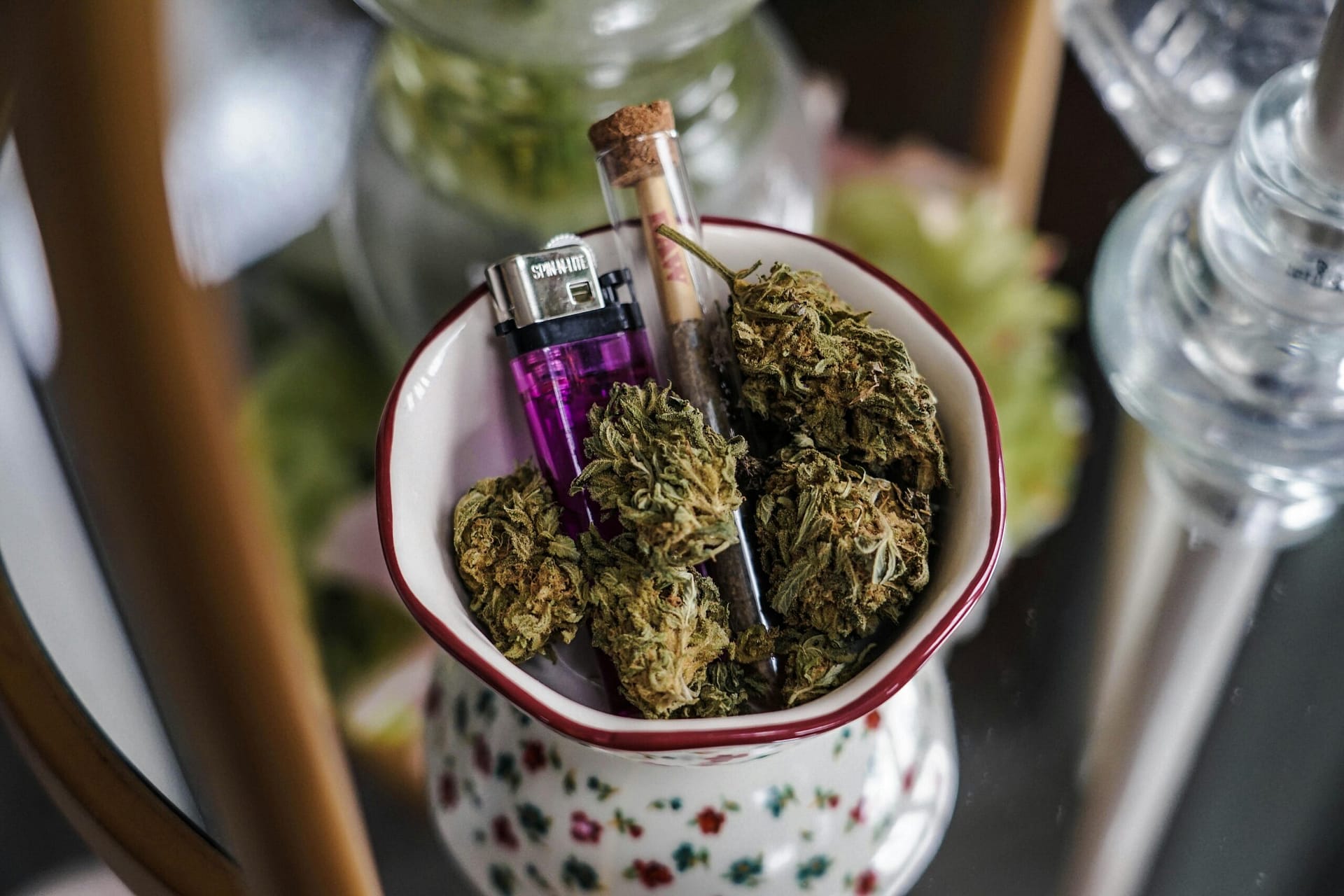If you have trouble sleeping, you may have heard about the potential benefits of CBD treatments for sleep disorders. CBD, short for cannabidiol, is a compound found in cannabis plants that has gained popularity for its calming and relaxing properties. In recent years, there has been growing interest in using CBD as a natural alternative to help manage sleep problems such as insomnia and restless leg syndrome. This article explores the effectiveness of CBD treatments for sleep disorders and discusses the current research and potential risks associated with using CBD for sleep. Whether you’re a sleep-deprived individual searching for a solution or simply curious about this emerging trend, read on to find out more about CBD treatments for sleep disorders.
Types of Sleep Disorders
Insomnia
Insomnia is a common sleep disorder characterized by difficulty falling asleep, staying asleep, or both. It can have a significant impact on your daily life, leaving you feeling tired, irritable, and unable to concentrate during the day. Insomnia can be caused by various factors, including stress, anxiety, depression, certain medications, and underlying health conditions.
Sleep Apnea
Sleep apnea is a sleep disorder that occurs when your breathing is repeatedly interrupted during sleep. This interruption can last for a few seconds to a minute and can happen multiple times throughout the night. Sleep apnea can be classified into three types: obstructive sleep apnea, central sleep apnea, and complex sleep apnea syndrome. It can lead to excessive daytime sleepiness, morning headaches, and other health issues if left untreated.
Restless Leg Syndrome
Restless Leg Syndrome (RLS) is a neurological disorder characterized by an irresistible urge to move your legs. This urge is often accompanied by uncomfortable sensations, such as crawling, tingling, or creeping feelings in the legs. RLS mainly occurs at rest, especially during the evening and night, leading to sleep disturbances. It can significantly impede your ability to fall asleep and stay asleep, resulting in daytime exhaustion.
Understanding CBD
What is CBD
CBD, short for cannabidiol, is one of the many active compounds found in the cannabis plant. Unlike tetrahydrocannabinol (THC), another compound in cannabis that causes psychoactive effects, CBD does not produce a “high” sensation. It interacts with the body’s endocannabinoid system (ECS), which plays a crucial role in regulating various functions, including sleep, mood, appetite, and pain.
How CBD Works in the Body
CBD works by interacting with receptors in the endocannabinoid system. It influences the release and uptake of neurotransmitters, including serotonin, which plays a vital role in sleep-wake cycles. CBD also has anti-inflammatory and analgesic properties, which can help alleviate pain and discomfort that might contribute to sleep disturbances.
Benefits of CBD for Sleep
CBD has gained attention for its potential benefits in promoting better sleep. Many individuals have reported experiencing improved sleep quality, reduced sleep latency (the time it takes to fall asleep), and increased overall sleep duration after using CBD. It may also help address the underlying causes of sleep disorders, such as anxiety, stress, and pain, allowing for more restful sleep.
Research on CBD and Sleep Disorders
Studies on CBD and Insomnia
Several studies have explored the effects of CBD on insomnia. One study published in the Permanente Journal in 2019 found that CBD improved sleep scores in a majority of the participants within the first month of treatment. Another study in 2014 suggested that CBD may have therapeutic potential for insomnia by reducing anxiety and promoting relaxation.
Studies on CBD and Sleep Apnea
Research specifically examining the effects of CBD on sleep apnea is limited. However, CBD’s potential anti-inflammatory properties and its ability to alleviate pain and anxiety could indirectly contribute to better sleep quality for individuals with sleep apnea.
Studies on CBD and Restless Leg Syndrome
There is limited research on CBD’s direct impact on Restless Leg Syndrome. However, CBD’s ability to interact with the endocannabinoid system, reduce pain, and improve sleep quality suggests potential benefits for individuals with RLS.
CBD Dosage for Sleep Disorders
Finding the Right Dosage
Determining the right CBD dosage for sleep disorders can be tricky as it varies from person to person. It is advisable to start with a low dosage and gradually increase until you achieve the desired effects. Consulting with a healthcare professional experienced in CBD use can provide valuable guidance in determining the appropriate dosage based on factors such as your weight, metabolism, and the severity of your sleep disorder.
Considerations and Potential Side Effects
While CBD is generally well-tolerated, some individuals may experience mild side effects such as dry mouth, drowsiness, or changes in appetite. Additionally, CBD may interact with certain medications, so it is important to discuss its use with your healthcare professional, especially if you are taking any other medications.
CBD Products for Sleep Disorders
CBD Oil
CBD oil is one of the most popular and versatile CBD products. It is typically consumed orally by placing a few drops under the tongue or adding it to food or beverages. CBD oil is readily absorbed into the bloodstream, making it a convenient option for promoting better sleep.
CBD Edibles
CBD edibles, such as gummies or chocolates, offer a tasty and discreet way to consume CBD. The effects of CBD edibles may take longer to kick in compared to other forms of CBD due to the digestion process. However, they can provide longer-lasting relief and promote a sense of relaxation conducive to better sleep.
CBD Capsules
CBD capsules are a convenient option for those who prefer a pre-measured dosage and easy ingestion. They can be taken with water like any other pill or supplement. CBD capsules may take a bit longer to take effect as they need to be digested and absorbed by the body.
CBD Vape
CBD vape products, such as e-liquids or cartridges, allow for quick absorption of CBD through inhalation. This method offers faster onset of effects, making it suitable for individuals seeking immediate relief from sleep disturbances. However, it is important to choose high-quality vape products and follow proper vaping techniques to ensure safety.
Best CBD Brands for Sleep Disorders
Brand A
Brand A is known for its high-quality CBD products specifically formulated for sleep disorders. Their products undergo rigorous third-party testing for potency and purity, ensuring consumers receive reliable and effective options for better sleep.
Brand B
Brand B offers a range of CBD products tailored to address sleep disorders. Their commitment to transparency and sourcing premium hemp ensures that their products meet the highest standards of quality and effectiveness.
Brand C
Brand C stands out for its innovative CBD formulations designed to promote restful sleep. With a focus on using natural ingredients and advanced manufacturing processes, their products offer a unique approach to addressing sleep disorders.
Tips for Using CBD for Sleep Disorders
Consult with a Healthcare Professional
Before starting CBD for sleep disorders, it is essential to consult with a healthcare professional experienced in CBD use. They can provide personalized advice, help determine the appropriate dosage, and address any potential concerns or interactions.
Start with a Low Dosage
To minimize the risk of side effects and ensure efficacy, it is recommended to start with a low CBD dosage and gradually increase it as needed. This allows you to find the minimum effective dose while avoiding unnecessary consumption.
Create a Bedtime Routine
Incorporating CBD into a soothing bedtime routine can enhance its sleep-promoting effects. Engage in relaxing activities like reading, taking a warm bath, or practicing meditation to signal your body that it’s time to unwind and prepare for sleep.
Maintain Consistency
Consistency is key when using CBD for sleep disorders. Take CBD at the same time each day to establish a regular sleep-wake pattern and allow your body to adjust to the effects of CBD. This regularity can optimize the potential benefits of CBD for better sleep.
Other Natural Remedies for Sleep Disorders
Valerian Root
Valerian root is a herbal remedy often used to promote restful sleep. It has been traditionally used for centuries due to its calming and sedative properties. Valerian root is available in various forms, including capsules, teas, and tinctures.
Magnesium
Magnesium is an essential mineral that plays a crucial role in regulating sleep. It helps relax muscles and calm the nervous system, making it easier to fall asleep and stay asleep. Magnesium can be found in food sources like dark leafy greens, nuts, seeds, and whole grains. It is also available as a supplement.
Lavender Oil
Lavender oil is well-known for its relaxing and soothing properties. Its aromatic scent has been shown to promote better sleep quality and reduce anxiety. Lavender oil can be used in a diffuser, applied topically, or added to a warm bath for a calming bedtime routine.
Success Stories of CBD for Sleep Disorders
User Testimonials
Many individuals have reported positive experiences with using CBD for sleep disorders. They have shared how CBD has helped them achieve more restful sleep, reduce insomnia symptoms, and improve their overall well-being. These testimonials highlight the potential of CBD as a natural sleep aid.
Patient Surveys
Patient surveys have also shown promising results in using CBD for sleep disorders. They have provided valuable insights into the effectiveness of CBD across a diverse range of individuals experiencing different sleep disorders. These surveys contribute to the growing body of evidence supporting CBD’s potential benefits for better sleep.
Conclusion
If you are struggling with sleep disorders such as insomnia, sleep apnea, or restless leg syndrome, CBD may offer a potential solution. CBD’s ability to interact with the endocannabinoid system and address underlying causes of sleep disturbances makes it an appealing option for many. However, it is important to consult with a healthcare professional and find the right CBD product and dosage for your specific needs. By incorporating CBD into your sleep routine and considering other natural remedies, you can take steps towards achieving a more restful and rejuvenating sleep. Remember to prioritize consistency and maintain good sleep hygiene practices to optimize the effects of CBD for better sleep.





